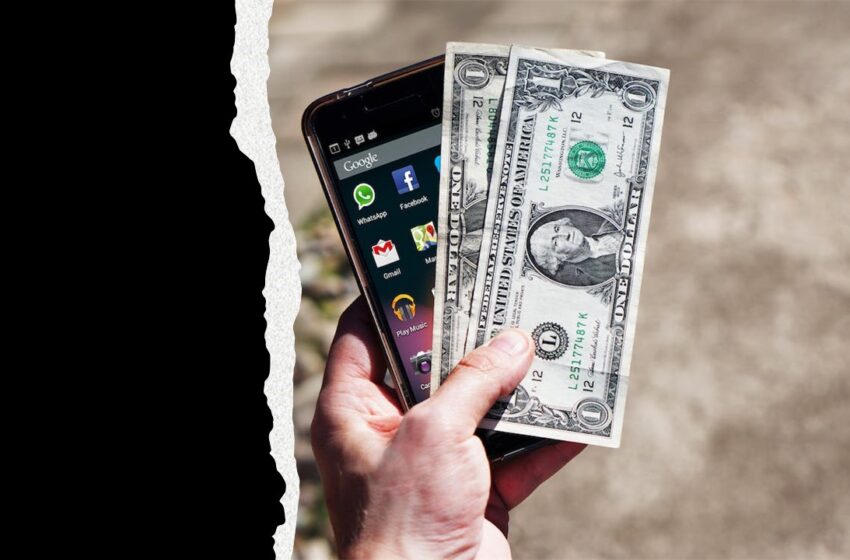Do You Really Need a Personal Finance App?


Getting your finances in order is a tedious task, but it’s an important one that you should practice to avoid difficult financial situations. Creating and following a financial plan will also help you reach your goals and ensure that you are prepared for emergencies.
You can undertake different strategies and use various software to organize your finances. One of which is using personal finance applications, which allow you to track your expenses and investments. These tools can also help you get started on your savings and stay updated on your bill payments.
There are lots of advantages to using financial apps, but there are also disadvantages that you should consider before utilizing them. Read on to know the other benefits of these tools, along with their drawbacks, to determine if using a personal finance app is the best money-organizing strategy for you.
Pros of a Personal Finance App
Continuous advancements in technology made it easier and faster for people to manage different aspects of their lives, including their finances. That’s why many financial tools have taken off and racked up thousands to millions of downloads from app stores.
Below are some of the key advantages of using money management apps:
Hassle-free Usage and Accessibility
The convenience and user-friendly design of financial tools are the top reasons why people like to use them. Many of these apps have pretty straightforward layouts, making it easy to navigate them and understand their features.
Accessibility is another benefit that personal finance apps offer their users. Whether you are at home, work, or out traveling, you can retrieve the information you need and make updates whenever you have to within minutes.
Provides Quick Insights Into Your Finances
On top of their convenience and great accessibility, financial apps also allow you to instantly get an overview of your finances. There are money management tools that help you monitor your expenses and check your savings to determine your financial situation.
Some personal finance apps even provide you with reports and charts of your transactions to help you better understand them. Others combine all of these features so you can easily see what is happening with your funds.
Helps You Reach Your Financial Goals
Money management apps are also a great way to achieve your saving goals, especially when you use their features to their full potential. For instance, religiously tracking your cash flow allows you to ensure that you can set aside a certain amount for your savings.
Some apps can also help you automate essential financial tasks, allowing you to make progress in reaching your goals. These tools also enable you to visualize your headway, giving you the motivation you need to continue your efforts.
Makes Transactions Fast and Easy
Visiting a bank or physical store to make the transaction you need is slowly becoming a thing of the past with the rise of finance apps. That’s because some money management tools have features that enable you to conduct your business straight from the app.
For instance, mobile banking apps allow you to transfer funds just by entering the details of the account you’re transacting with or scanning a QR code. Many of these tools even allow you to deposit a physical check straight to your account by simply uploading a photo of the check.
Cons of a Personal Finance App
There is no doubt that financial apps offer many benefits that make money management more bearable. However, these tools also have their fair share of drawbacks.
Relies on Technology
The most glaring disadvantage of money management applications is their reliance on technology. Not having an internet connection can disrupt your attempt at organizing your finances or making transactions such as online payments (unless the tool you use doesn’t require internet access).
This type of mobile software is also prone to crashes and bugs, which affect the way you use them and even the information stored in the apps.
Security Concerns
Financial tools store sensitive information, making them prime targets for cyber-attacks that could lead to data theft and loss of funds. While these apps have security features to ensure the protection of your data, these safeguards eventually become outdated and bypassed by skilled hackers.
There are also fake apps that disguise themselves as legitimate ones as a means to gather your data or install malware on your devices. That’s why you should be extra vigilant before downloading or installing a financial app on your devices.
Constant Updates and Maintenance
As mentioned, applications are prone to bugs and crashes that not only affect their function but also their security. Developers address this problem by providing frequent updates to their software.
That means you’ll have to download these updates whenever they become available to ensure that your financial apps are working smoothly. It’s a simple task, but it can feel like an inconvenience especially if the improvements come sparingly.
Should You Use a Personal Finance App?
With financial apps, you can organize your budget, view your savings, transfer funds, build your credit score, and even make investments with just a few taps on your devices. These benefits are what makes these apps so convenient and worthwhile when you use them.
However, they are not without fault. These tools’ reliance on technology, the pervasive security concerns surrounding them, and the constant maintenance they need may make you hesitant to try them out — which is understandable, especially if it’ll be your first time using a personal finance app.
With this information in mind, it is up to your preferences and needs to determine if you should give personal finance apps a shot or not. Using the pros and cons above can also help you in making your final decision.
Do You Really Need a Personal Finance App?

